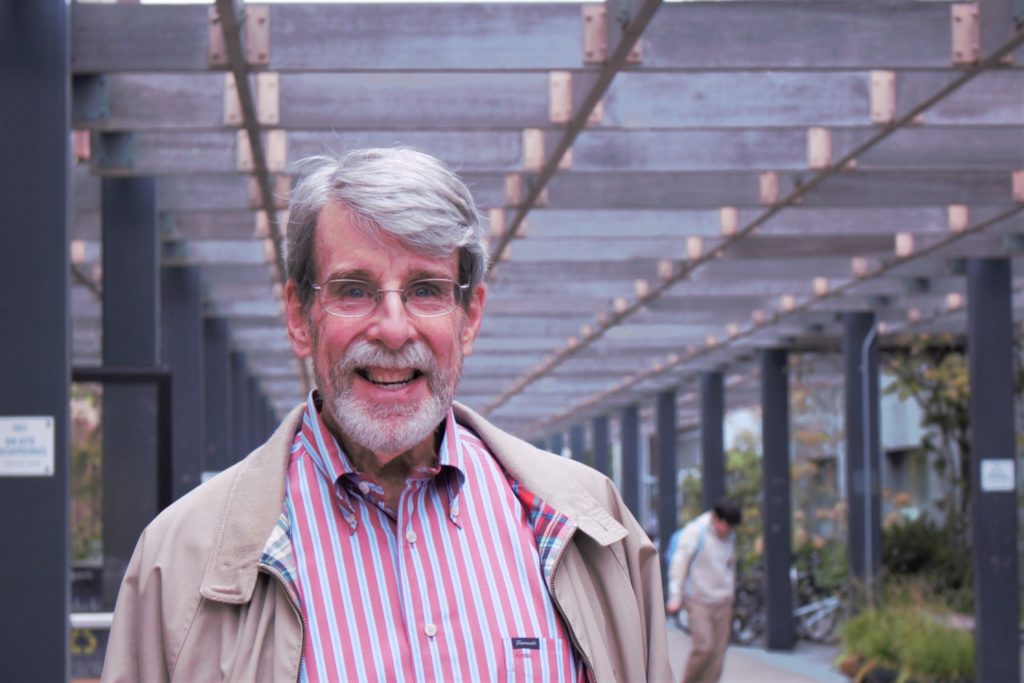Board member Terry Duryea’s mantra for a rewarding career — maintain flexibility and stay on a steep learning curve
Have you ever been confused about how to briefly yet accurately describe Industrial Engineering and Operations Research to old Uncle Ben sitting across you at the Thanksgiving dinner table? Well, IEOR can indeed be a difficult major to define for most. To the ex-CFO of McAfee and IEOR Advisory Board member Terry Duryea, however, IEOR comes down to modeling and decision making in a dynamic and unpredictable world. In a recent conversation with the department, Terry shared his experiences of a career in business modeling and financial decision making.
Having spent his first few years in Indiana, Terry and his family lived in San Francisco before finally moving to New York. Speaking of his high school in New York, Terry claims “It was a struggle! High school is tough for everybody; I considered myself an average student but they put me in honors classes, and I didn’t have any good study habits.” Talking of his eventual admission to Berkeley and reasoning his choice of an engineering major, Terry states “The only subject I got a C in, the highest grade of my high school freshman year, was math. Fortunately, my grades improved each year.” Admission criteria might have been different in the time, but to opt for IEOR was a natural choice.

Speaking about his undergraduate experience in IEOR at Berkeley, Terry highlights that being a co-op student with US Steel in Pittsburg, CA, led him to realize very early that he did not want to work in manufacturing, a historical focus of industrial engineering. He instead realized that all his lessons from industrial engineering could be used in modeling real-world systems, and diverted his interests to that domain.
Right after completing his undergraduate degree, Terry attended Stanford Business School. Although going directly to graduate school was more common then, Terry did so to get deferred from being posted on active duty during the Vietnam war. Recalling his memories from then, Terry particularly states how graduating from business school allowed him to value the integration of people and processes and not overlook the non-engineering elements of large scale systems.
“By far the smartest decision my wife and I made,” claims Terry as he continues to talk about going on a three-month-long Europe trip on completing business school, after which he accepted his first job at what is now one of the big four accounting firms — Deloitte. Having no set interest in an industry or a job as yet, Terry believed being at Deloitte would train him with skills in accounting and help him maintain a steep learning curve; one that saw him become a CPA and eventually a partner. Following his role at Deloitte, Terry served as a VP of Finance and CFO at three medium-scale technology firms over the next few years, taking one public, helping sell the second, and preparing the third for an IPO. Afterward, he was appointed CFO at McAfee Associates in 1995.
Terry joined McAfee on realizing the amazing growth trajectory associated with it; he saw the potential internet security could have well before it was commonplace. When he joined, McAfee had revenue of $100 million and was a shareware company offering premium paid services to businesses. As CFO, he was tasked with ensuring the smooth financial transitions, as the company expanded to providing large scale internet services and grew at a remarkable 75% annually. He was also responsible for monetizing the web traffic, as the McAfee website received the second-largest traffic for a software company from users wanting to download the free services. To work with growth numbers and monetary concepts unheard of during the time is what made his role fulfilling.
Realizing that he wanted to focus more on his family, Terry then decided to quit full-time work and defined the role of ‘Non-employee Founder’ for himself, wherein he drew on his financial and accounting expertise to help start companies in return for founder stocks. While his roles remained diverse — acting CEO to industry mentor to hiring manager — the crux of them all was expounding on the relationships and reputations he had built with investors and founders.
Terry now invests his time in community services including the Los Gatos Town Financial Committee and working alongside several non-profits focussing on housing and healthcare for seniors. As an alumnus of Cal and Stanford, Terry also actively serves both schools.
When asked to advise current students, Terry emphasized the importance of curiosity and willingness to explore throughout one’s career. He says “… you can’t predict where the world is going… [success] comes down to expanding your knowledge and broadly maintaining flexibility.” He claims to envy how much further ahead students are today in terms of knowledge and their worldview but hopes they do not succumb to the pressure and competitiveness that surrounds them.
To Terry, IEOR is a fantastic foundation for doing what one wants to do. He believes in not restricting this foundation to an industry — for industries simply change far too quickly — and applying it at companies with growth environments, ethical leadership, and a positive purpose. After all, if Tim Cook and Doug Leone can both have such different careers while being industrial engineers, there has to be something right about the major. And to briefly explain that to Uncle Ben might be a daunting challenge.